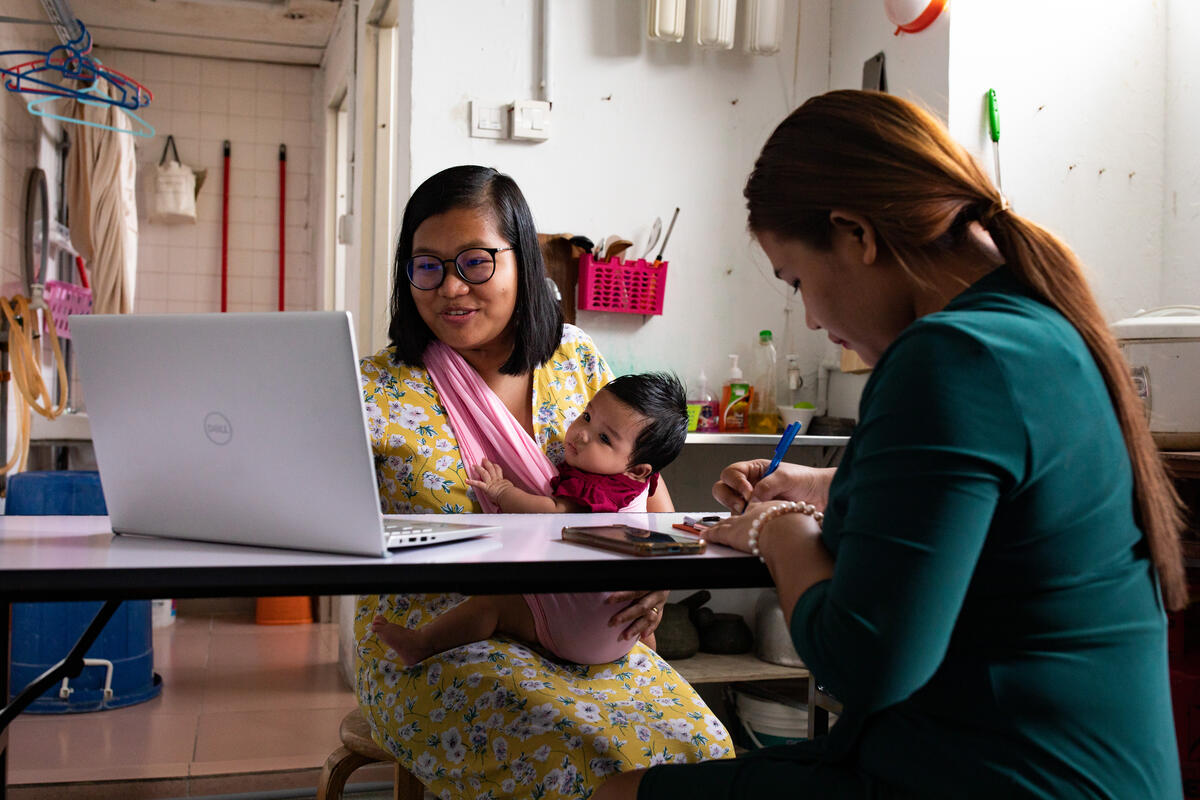UNHCR calls on states to remove barriers to access to COVID-19 vaccines for refugees
UNHCR calls on states to remove barriers to access to COVID-19 vaccines for refugees

Four months since the first delivery of COVID-19 vaccines from the COVAX facility, the global initiative to ensure the vaccines’ equitable distribution, UNHCR, the UN Refugee Agency, calls on States to expedite the roll-out of vaccination campaigns and remove barriers that limit access to vaccines for the world’s 82.4 million forcibly displaced people.
UNHCR is monitoring the inclusion of refugees and asylum seekers in COVID-19 vaccination plans and roll-out in 162 countries.
Of the 126 countries with a refugee population of more than 500 people, UNHCR has confirmed that 123 have either explicitly included refugees in their vaccination plans or provided assurances that they will do so. This is also the case for asylum-seekers in 93 out of 96 countries.
Moreover, UNHCR is able to confirm that refugees and asylum-seekers have begun receiving COVID-19 vaccinations in 91 of the 162 countries monitored. UNHCR commends the States that have included these forcibly displaced populations in the vaccine roll-out and urges others to follow their lead.
“Around the world, we have seen an unwavering commitment to not leave refugees behind in COVID-19 vaccination planning,” said Ann Burton, Chief of UNHCR’s Public Health Section. “But barriers to vaccination persist. Stronger efforts are needed to ensure that States’ assurances for refugee inclusion turn into tangible reality.”
To register for or receive vaccinations, some States require identity documents which refugees often do not have. Others have set up online systems that can deter or prevent people without access to the Internet or who are not computer literate from registering for vaccines.
In several countries, vaccination sites are located far from where refugees live, which could deter them from seeking immunization. This is the case particularly in Sub-Saharan Africa, where newly reported COVID-19 cases are on the rise, in contrast to the observable decline in many parts of the world.
Other factors that prevent people from getting vaccinated include the real or perceived cost of the vaccine services, language barriers, as well as lack of information, misinformation and limited opportunities to ask questions, which can lead to vaccine hesitancy.
UNHCR welcomes the efforts of States to overcome these hurdles. Moldova and Serbia prioritized bringing the vaccine to people living in asylum centers, while in Serbia vaccination is completed for refugees living in private accommodation as well. Senegal and Cameroon allowed refugees to register in designated health facilities and city councils in the vicinity of their communities. Portugal introduced a specific registration system for undocumented persons to ensure that no one is excluded from the vaccine roll-out. Meanwhile, in the Democratic Republic of the Congo (DRC) the region’s largest awareness-raising campaign on COVID-19 has reached more than 1.7 million people since the beginning of the pandemic.
UNHCR stands ready to work with all States to ensure at least 20 per cent of refugees are vaccinated by the end of 2021, as per the target set by COVAX. The Agency also urges States with surplus vaccine doses to share them with lower and middle-income countries and to support the COVAX facility.
“Beyond the moral imperative, this is in our collective self-interest,” said Burton. “As long as the pandemic remains out of control somewhere, it is threat for everyone everywhere.”
Key data:
- For a regional breakdown of the inclusion of refugees and asylum-seekers in vaccination campaigns, click here.
For more information on this topic, please contact:
- In Geneva, Aikaterini Kitidi, kitidi@unhcr.org, +41 79 580 8334








